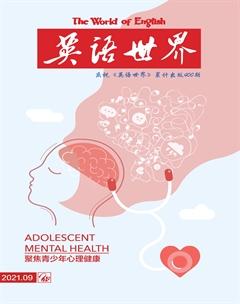Experiencing Study Shock


By A. J. Dalton (amended by Jon Porter)
Living in a foreign country is very different from just visiting it on holiday. Nearly everybody experiences ‘culture shock when they stay in a country that has different languages, customs and systems from their own. They will experience excitement, frustration and fear, but finally get used to that foreign culture. For some people the shock will last for just a few hours, but for others, it will persist for weeks or months.
I spoke to two international students living in the UK city of Manchester to see how much they were affected. The first was Tong Li (nickname Lily), a student from Beijing, studying for an MSc in Sustainable Aviation at Manchester Metropolitan University. The second was Umar Munir from Gilgit, the capital city of the northern region of Pakistan bordering both India and China. Umar is working towards an MSc in Environmental Management and Sustainable Development at the same university. I asked Lily and Umar if they had suffered badly from culture shock when they first arrived. Neither of them had. ‘Manchester is very diverse. You can walk for five minutes and meet people from Jamaica, the Middle East, Europe, Turkey, Asia, India, all sorts, Umar explains. ‘I particularly like to visit the restaurants in the Curry Mile, where you can get every type of Asian food. When asked what they thought the best and worst things about Manchester were, Lily said, ‘Its not a big city but its beautiful and safe. However, you sometimes see rubbish on the street. Umar liked the countryside around Manchester: ‘The Peak District is just ten minutes drive away. Ive also visited beaches in North Wales, the Lake District and Blackpool on the coast. Theyre all close to Manchester. The weather is the worst thing. Its unpredictable and rains a lot. Lily found the temperate weather a bit more refreshing: ‘Although it often rains, the air is clean and fresh. The sky is beautiful and the weather is not too cold or too hot.
How is studying different in the UK?
When I asked Lily what the main differences were in the approaches to study in China and the UK, she said: ‘In Manchester Metropolitan University, the class is flexible and usually requires students to use their imagination and creativity. Students often do group work and give presentations in class. Students depend mostly on self-study outside of class. In my university in China, the usual mode of class is the teacher talking and the students listening. I am comfortable with both of these two learning approaches. The combination of them makes me more capable of adopting different learning approaches in different environments. And Umar? He said: ‘The research in the UK tends to be very up to date and focuses on current policy and thinking. It considers todays issues and possible practical solutions. In Pakistan, I have to address my tutor as ‘Sir or ‘Maam, whereas my British tutor told me to call him Paul. He encourages me to discuss things and talk openly so that we both get useful feedback.
Any problems?
‘I cannot communicate very well with people who speak with a strong dialect, Lily admits. ‘The Mancunian accent isnt in the IELTS exam, so I had a slight problem at first, Umar nods. ‘Mancunians say /b?z/ instead of /b?s/, for example. In addition, the Mancunian dialect also has some unique words and phrases. For example, being ‘mad for it is to be full of enthusiasm. Also, a ‘chip barm is a bread roll with chips as the filling.
Free time and making friends?
Lily: ‘The Mancunians are friendly and polite. The English are humorous and gentle. I always go shopping, watch TV and see films in my spare time. The fish and chips are delicious but the desserts are too sweet. Umar: ‘The people are well-mannered and helpful. If youre lost, theyll always stop and give you directions. I have two or three close English friends, and theyre not my classmates! Its easy to make friends because whenever you go for a walk, people will just start chatting to you. Or theyll talk to anyone in the pubs, clubs and shisha cafés. People are football-crazy here. Everyone supports United or City. I havent been to the stadium, but I watch it on TV. I like to look at the architecture in Manchester, for the famous red bricks everywhere, and the historic buildings standing right next to modern ones everywhere. And there are lots of churches, mosques and temples all next to each other.
Any final advice?
Lily says, ‘Before you arrive, learn more about the culture and history of the UK, and lay a good language foundation for yourself. Umar says, ‘If youre feeling homesick, then having food from your own country really helps. So when you choose a UK city in which to study, consider whether theres a community from your own country there. Manchester also has cheaper travel and accommodation than London.
Activity 1: Cultural attitudes
Look at the following academic issues and decide for each one whether you MUST DO it (MD), DONT HAVE TO do it (DHT) or MUST NOT DO it (MND) in your country.
a agree with your teacher
b plagiarise
c work independently outside the classroom
d present your own ideas in class
e work with other students in class
Now look at the article and compare your answers to those for studying in the UK.
Activity 2: Lilys experience
Here is a reported question from the article: I asked Lily and Umar if they had suffered badly from culture shock. The question in direct speech is ‘Did you suffer badly from culture shock? See if you can put these reported questions from the article into direct speech.
1 I asked what they thought the best and worst things about Manchester were.
2 I asked Lily what the main differences were in the approaches to study in China and the UK.
Now see if you can turn these direct speech questions into reported speech.
3 ‘Do you have any problems?
4 ‘What do you do in your free time?
Activity 3: Multiple choice
Decide if the statements below describe Lily (L), Umar (U) or both students (B).
1 Likes the weather in Manchester
2 Has some trouble understanding the Mancunian dialect
3 Has travelled to other places in the UK
4 Doesnt like British puddings
5 Hasnt suffered much from culture shock
6 Is a sports fan
Fun corner
How much would you suffer from culture shock if you visited another country? Choose an answer for each question.
1 Apart from your own, how many languages can you speak?
a None
b One or two
c Three or more
2 Apart from your own, how many countries have you visited?
a None
b One or two
c Three or more
3 Do you speak to anyone living in a foreign country?
a Not really
b I have family or penfriends in a foreign country that I speak to every now and then.
c I talk online to people from foreign countries all the time.
4 What sorts of foods do you eat?
a I only tend to eat the traditional cuisine from my country.
b I have tried foreign foods once or twice.
c I regularly visit foreign food restaurants.
Now work out your total score. For each a) answer, you get 1 point. For each b) answer, you get 2 points. For each c), 3 points. Now look at the Answers section to see how you did.
Word of the day
In the Mancunian dialect, the term ‘Sorted! means ‘thats fine or ‘thats good.
Answers
Activity 1
a DHT; b MND; c MD; d MD; e MD
Activity 2
1 ‘What are the best and worst things about Manchester?
2 ‘What are the main differences in the approaches to study in China and the UK?
3 I asked them if they had any problems.
4 I asked them what they did in their free time.
Activity 3
1 L; 2 B; 3 U; 4 L; 5 B; 6 U
Fun corner
If you scored 4–6, you will suffer a lot from culture shock.
If you scored 7–9, you will suffer an average amount of culture shock.
If you scored 10–12, you will only suffer a little from culture shock.

